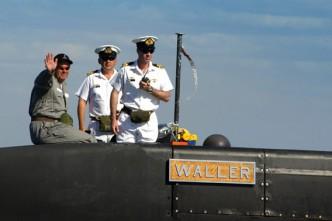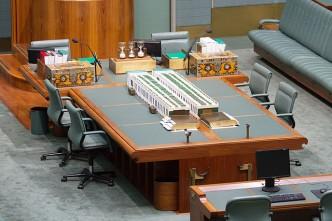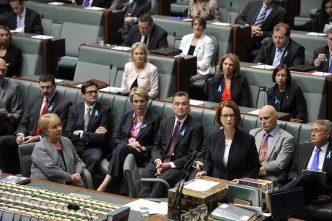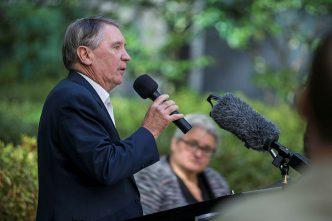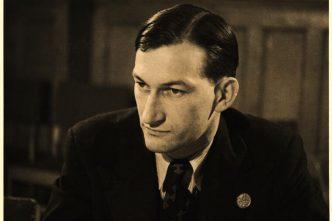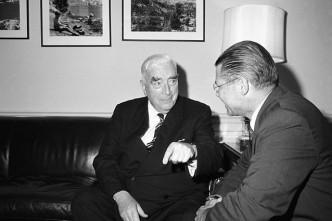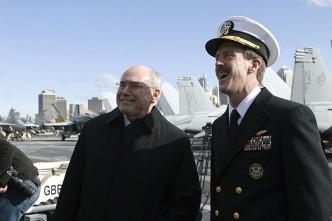The electric storm that rages around the Defence White Paper has big elements of ritual politics and tacit consensus, despite the intense arguments over plans, priorities and projections. This is standard Oz politics played as …
Yesterday I described how a series of important security-related public policy documents had been effectively ‘tabled’ in public before the Parliament had seen them. In the case of the National Security Statement, it never made …
The Prime Minister has failed to put her National Security Strategy to Parliament. The document hasn’t even been tabled in the House. The Strategy is a public statement of policy, certainly, but the complete bypassing …
My previous column compared the only Australian mandarins who have headed both Foreign Affairs and Defence, Dennis Richardson and Arthur Tange. To further pursue that comparison, step forward two other mandarins: Philip Flood, former Secretary …
With his appointment as the Secretary of the Defence Department last year, Dennis Richardson has joined Arthur Tange as the only public servant to have headed both the departments of Foreign Affairs and Defence. Given …
As a budget, a White Paper and an election crowd the calendar, Defence counts down the days to the withdrawal from Afghanistan. It’s easier for the Defence Minister to talk about Afghanistan than to say …
Margaret Thatcher sent me to cover a war, she showed me how leaders do diplomatic knife fights at the summit and she gave me a front row seat as she bruised and bent Britain in …
Ross Terrill’s life course and professional experience mirror much of what has happened in Australian geopolitics and economic life since WWII. The country lad growing up in Gippsland started with the ‘umbilical cord’ view of …
The Australian public service has two modes for offering its famed frank and fearless advice to ministers. One method is ‘stand ready’. The much rarer, high risk approach is ‘cop this’. In stand ready mode, …
The tenth anniversary of the Iraq war is an opportune moment for the Canberra system to contemplate the need to strengthen its traditions and foster some more robust conventions. Ten years on, emotion remains high …
If we learn more from losses than wins, then the Canberra system has much to gain from examining its lousy performance in the processes that took Australia to war in Vietnam and Iraq. For Australia, …
The way Australia goes to war hasn’t changed in a century. The Prime Minister declares the deployment or announces the conflict and the troops march and the ships sail. This is the leader’s most profound …
